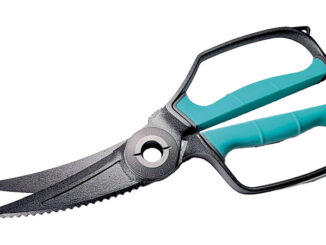
The mouth of the Mississippi River is a long way from where Bassmaster Classic anglers will launch, but those who make the run should find winning stringers waiting for them.
It’s said that a frog will allow itself to be boiled alive if placed initially into a pot of water that’s cool. It won’t even notice the incremental change in water temperature until it’s too late.
Throw a frog into a pot of boiling water, however, and it’ll use its mighty legs to shoot off the surface of the water before very much damage can be done.
Like frogs placed in cool water, we Louisianians aren’t even aware that the coastal-erosion pot is about to boil over. It’s a steady drip-drip, a death of a thousand cuts, and we stand on the very edge of losing it all.
Louisiana Sportsman magazine has roped off a significant chunk of this issue to discuss nothing but the land-loss crisis in Louisiana. We’ve never devoted this much space to any other single topic in our history, and there’s a compelling reason why we’re doing it now — there is no issue that’s more important to the Louisiana way of life, nor is there one that’s more urgent.
If you think coastal erosion is a problem we’ll solve eventually, or one that really isn’t as big a deal as scientists say, think again. Our coastal fisheries, our duck hunting, our culture, our coastal cities and communities, and the bulk of our nation’s domestic oil and gas production are at serious risk of being destroyed in the next decade.
Don’t believe me? Then please read this issue, or do the research yourself. It’s very easy to find, and we give you links to some great resources in the special section in this magazine.
I’m normally an indomitable optimist, but through the hard research I’ve done in the past six weeks, I’ve grown fatalistic and somewhat depressed.
That melancholy is not because we don’t have the technology to stop what is happening. We do. It’s not because we, as a nation, don’t have the money to repair the coast. We do.
My despair is because the people of Louisiana — my lifelong kinsmen — lack the resolve to endure, even demand, the types of changes that will be required.
That’s become obvious in the utilization of what is one tiny, little piece of the coastal restoration puzzle — the Caernarvon Diversion. Constructed at a cost of $26.1 million, the diversion was designed to allow 8,000 cubic feet per second (cfs) of river water through its retractable gates.
But such a flow rate ticked off shrimpers, speckled trout anglers, crabbers, bass anglers, oystermen, redfish anglers, etc., so the flow has been greatly reduced by the political arm that controls the tap — the Caernarvon Interagency Advisory Committee.
In fact, in the decade that Caernarvon has been operational, the flow has averaged 16 percent of capacity. That’s nothing, and its coastal restoration results will be equally as paltry.
The same will be true when Davis Pond finally becomes fully operational at the end of this year.
“As long as we have shrimpers, fishermen and landowners meting the water out of (the diversions), they’ll do so in a way that’s as painless as possible,” said Rex Caffey, associate professor of wetlands and coastal resources with the LSU AgCenter and Louisiana Sea Grant.
The big-picture problem, however, is that the cures to our coastal-erosion crisis are going to be very painful. They’re going to mess up your fishing holes; they might destroy your duck lease.
But you’ll lose them anyway in short order if we do nothing.


